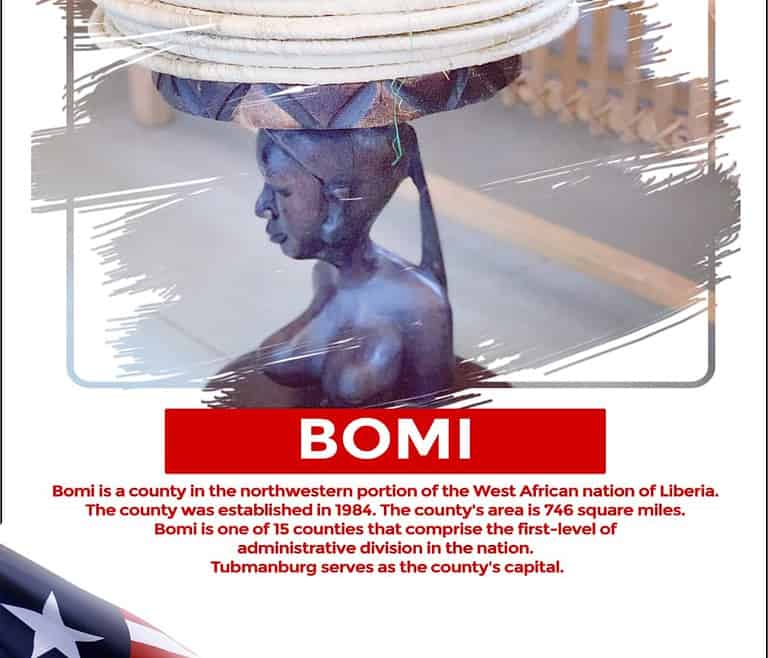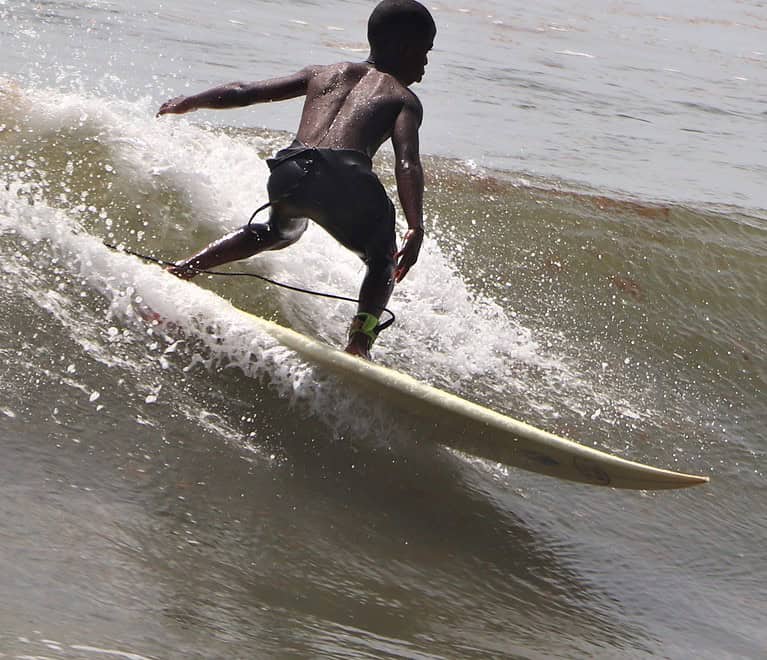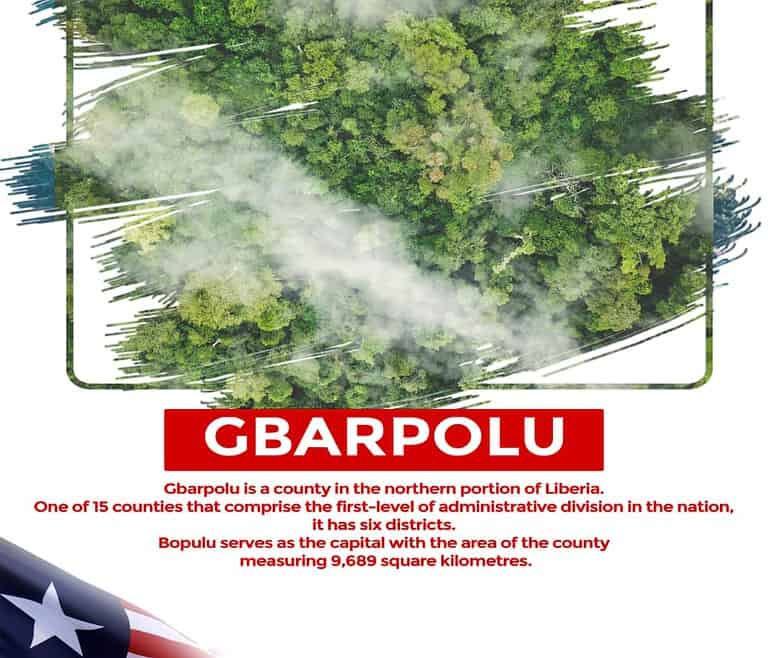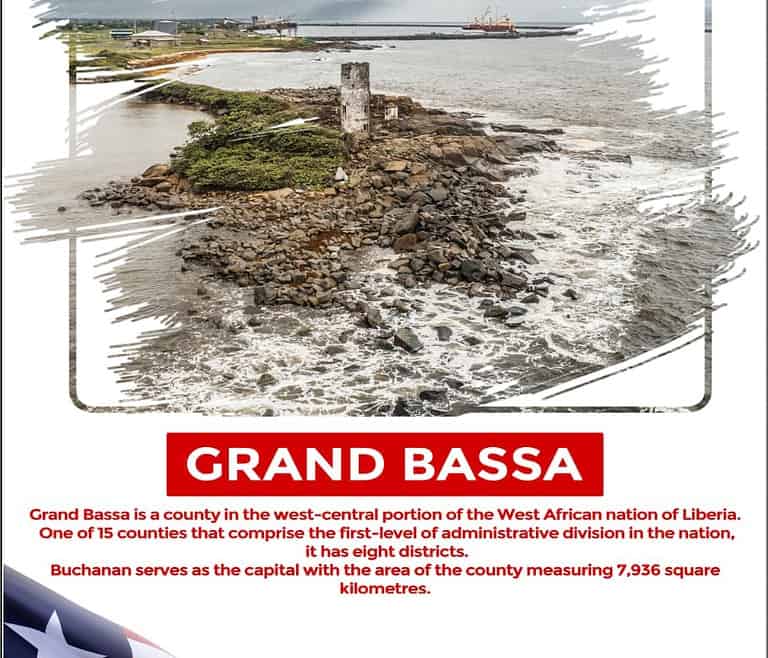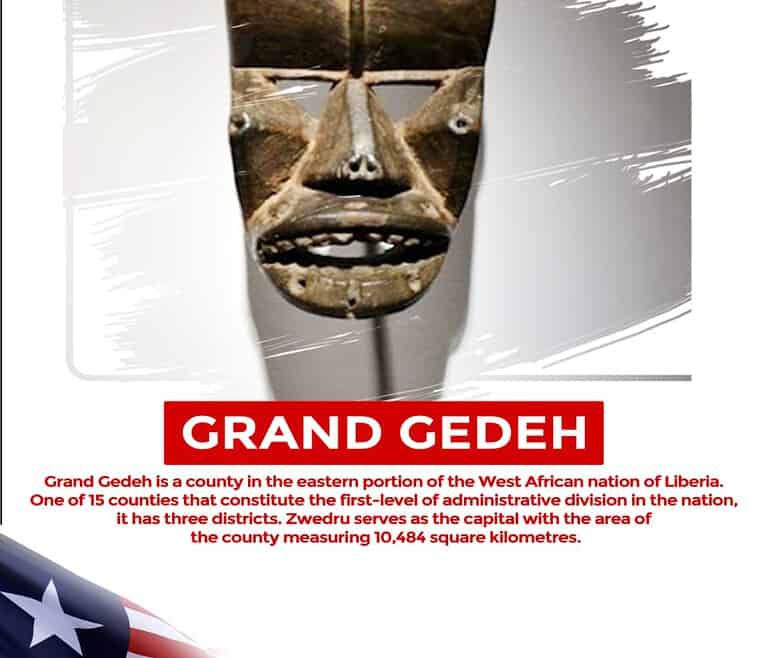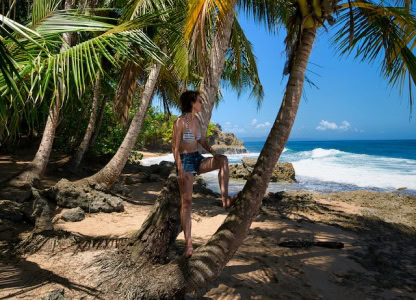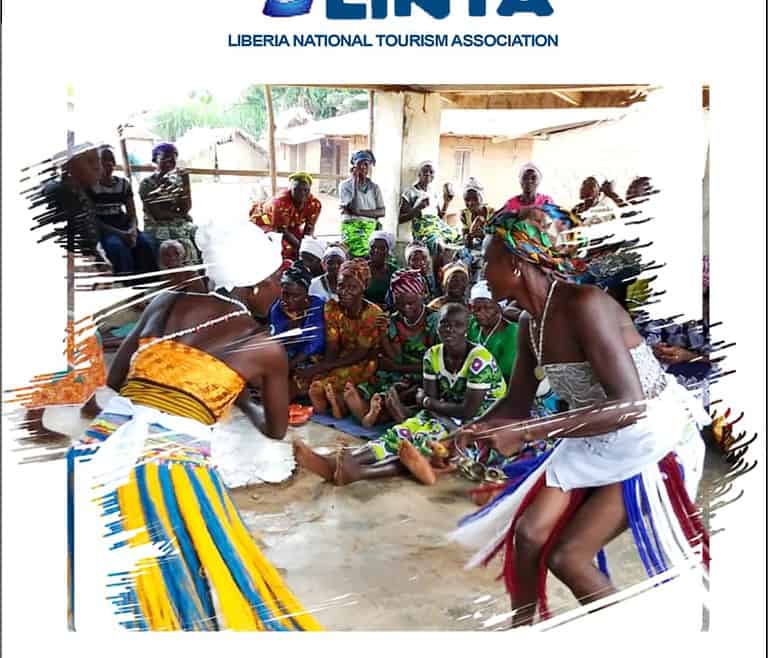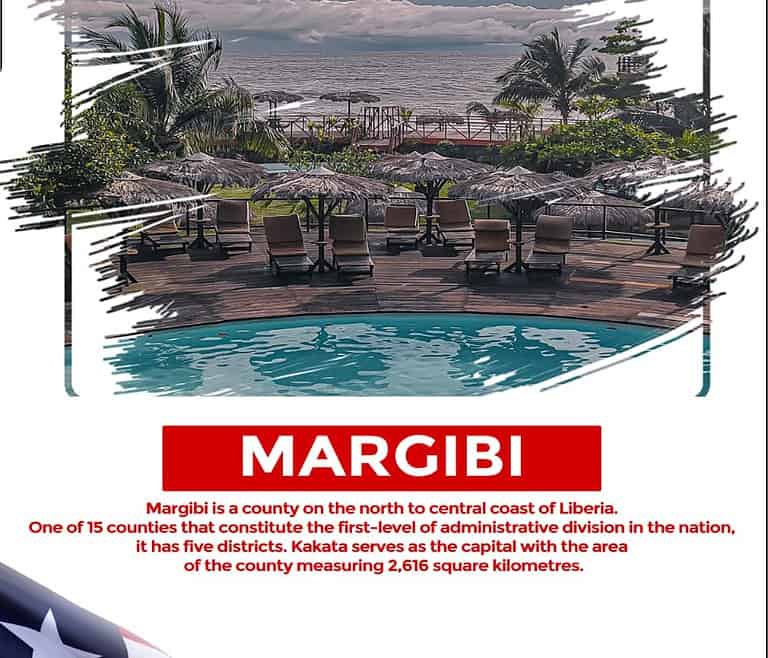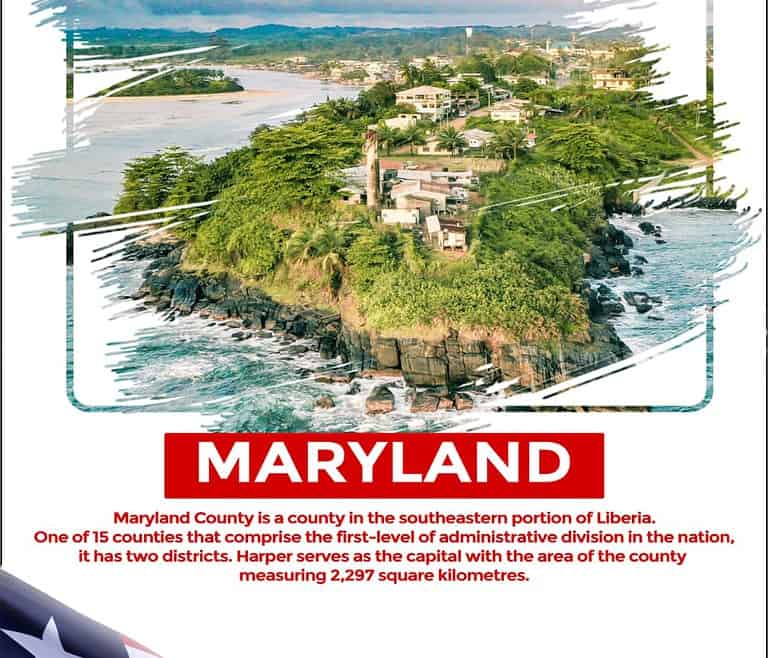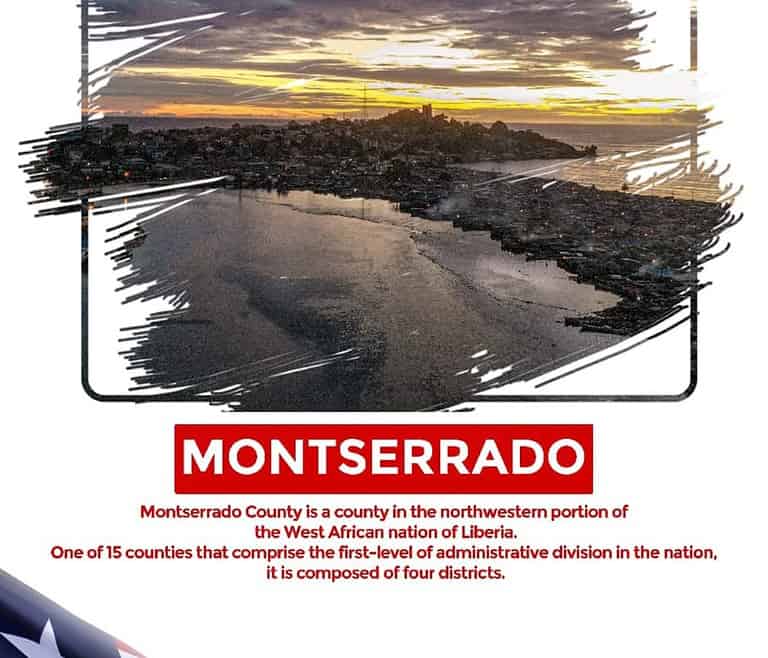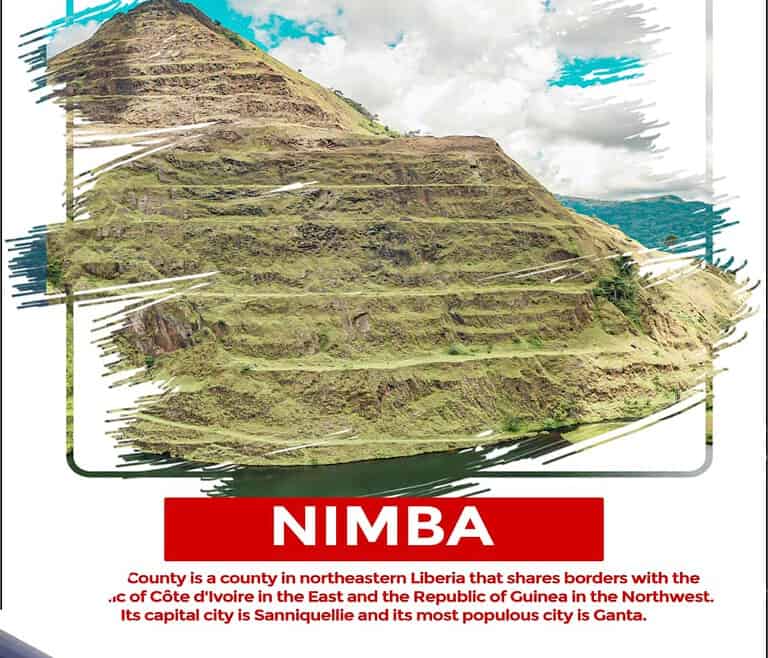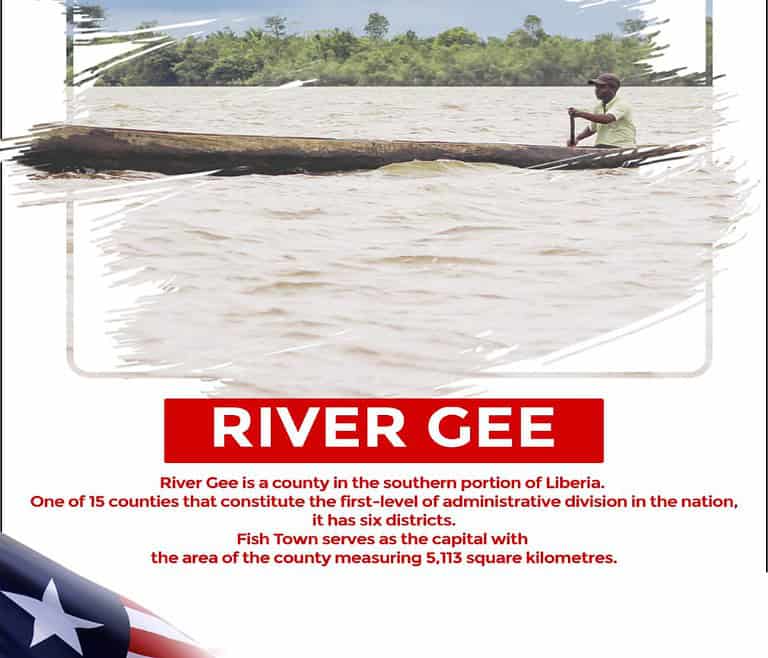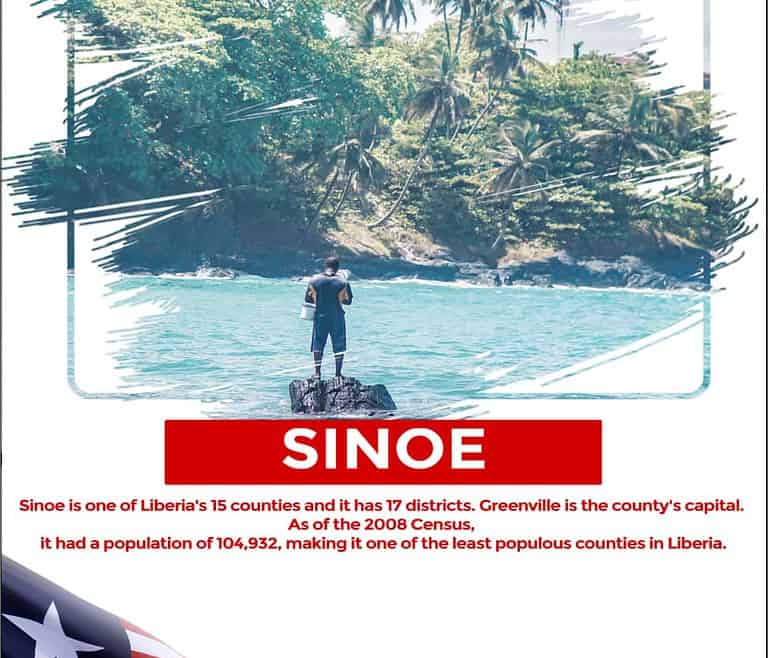Historical Facts
-
Cape Mount
Read MoreThe 300-foot-tall Cape Mount became the landmark for settlers in the region. Theodore Canot formed the settlement in 1840. The name comes…
-
Gbarpolu County
Read MoreGbarpolu County, home to several gold and diamond mines consists mostly of forest. The Gola National Forest, situated in north-west…
-
Grand Bassa County
Read MoreGrand Bassa County is one of the three original counties that first formed the Republic of Liberia. It was established…
-
Grand Gedeh County
Read MoreWhat many do not realize is that the location of Grand Kru makes it the perfect destination for vacations, retirement…
-
Grand Kru County
Read MoreThe County is a land of vast forests irrigated by many rivers. The County’s top-most priority for development can be…
-
Lofa County
Read MoreIt has three National proposed reserves, Wologizi Mountain (99,538 ha (245,960 acres)), Wonegizi Range (37,979 ha (93,850 acres)) and Foya…
-
Margibi County
Read MoreMargibi County is famous for its numerous rubber plantations, paramount among them being the Firestone Rubber Plantation. Kakata serves as…
-
Maryland County
Read MoreThe Republic of Maryland (also known variously as the Independent State of Maryland, Maryland-in-Africa, and Maryland in Liberia) was a country in West Africa that existed from 1834…
-
Montserrado County
Read MoreMontserrado is the smallest county, but largest by population of Liberia. On December 11, 1821, officials from the United States…
-
Nimba County
Read MoreThe name of the county Nimba originated from Nenbaa which means slippery mountain where beautiful young girls slip and fall.…
-
River Cess
Read MoreThe Cestos River, also known as Nuon or Nipoué River, rises in the Nimba Range of Guinea and flows south…
-
River Gee County
Read MoreLike most other counties of Liberia, River Gee is a natural landscape of forest bodies with enclaves of waterfalls, streams,…
-
Sinoe County
Read MoreSinoe is the third-largest area of all Liberia's counties and is home to the renowned Sapa National Park. The County…

